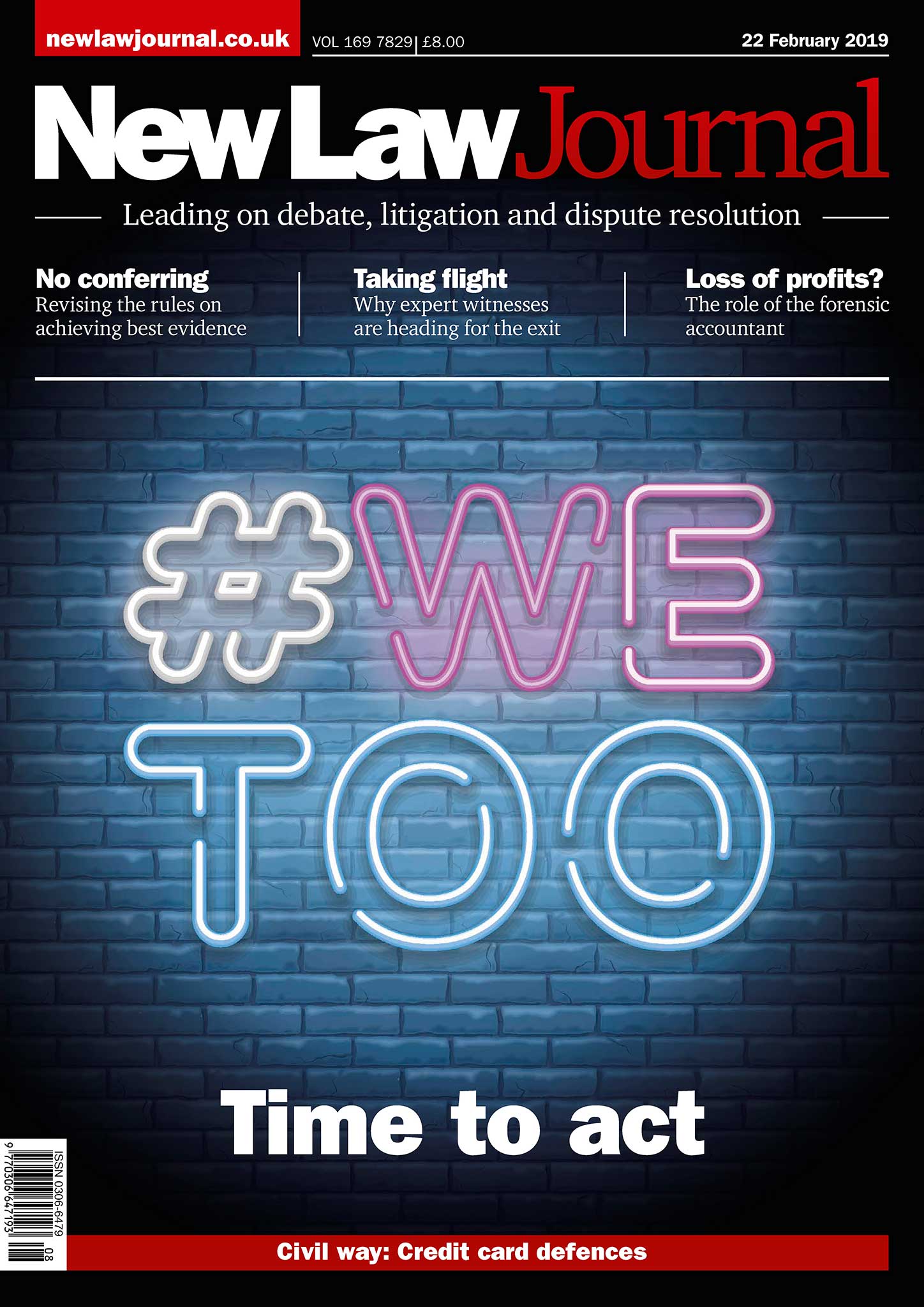
It’s time for lawyers to contribute to the debate on confidentiality agreements, says Juliet Carp
Andrew Wilkinson considers the pros & cons of embracing 21st century technology
Pt 1: In the wake of the home secretary’s approval of revised rules on conferring by police officers in writing up their post-event accounts, David Wolchover & Anthony Heaton-Armstrong focus on the issues at the heart of the debate
Nullity goes up; legal aid cuts no ice; homicide in Court of Appeal.
Why are expert witnesses stopping work? Mark Solon reports
Martin Burns reflects on the ever-changing role & duties of the expert witness
George Sim looks at the ways in which a forensic accountant can add value
MOVERS & SHAKERS

NLJ Career Profile: Ken Fowlie, Stowe Family Law
Ken Fowlie, chairman of Stowe Family Law, reflects on more than 30 years in legal services after ‘falling into law’

Jackson Lees Group—Jannina Barker, Laura Beattie & Catherine McCrindle
Firm promotes senior associate and team leader as wills, trusts and probate team expands

Asserson—Michael Francos-Downs
Manchester real estate finance practice welcomes legal director







